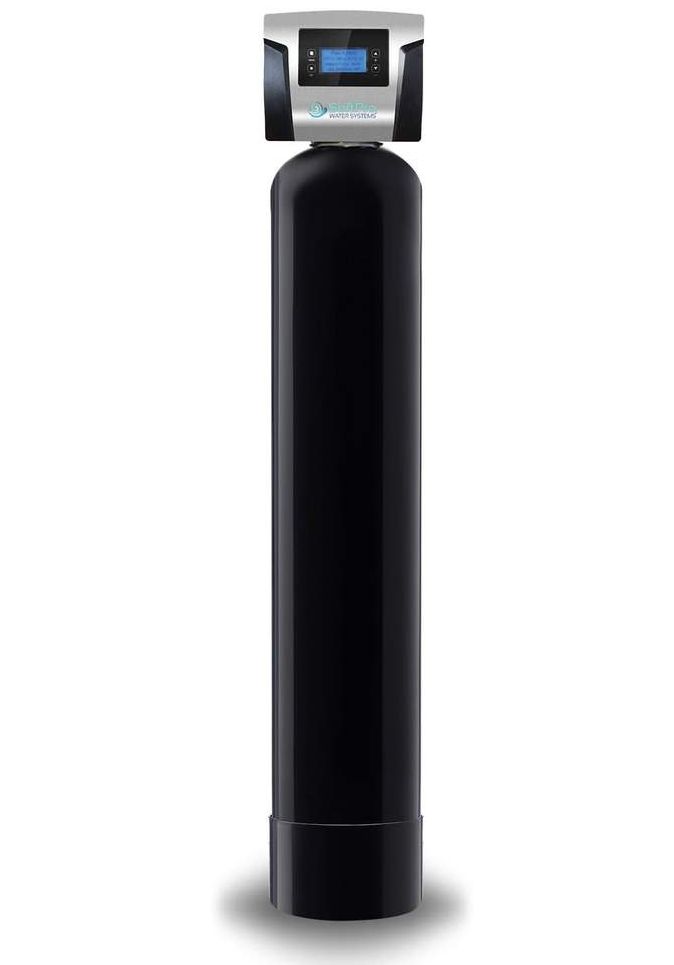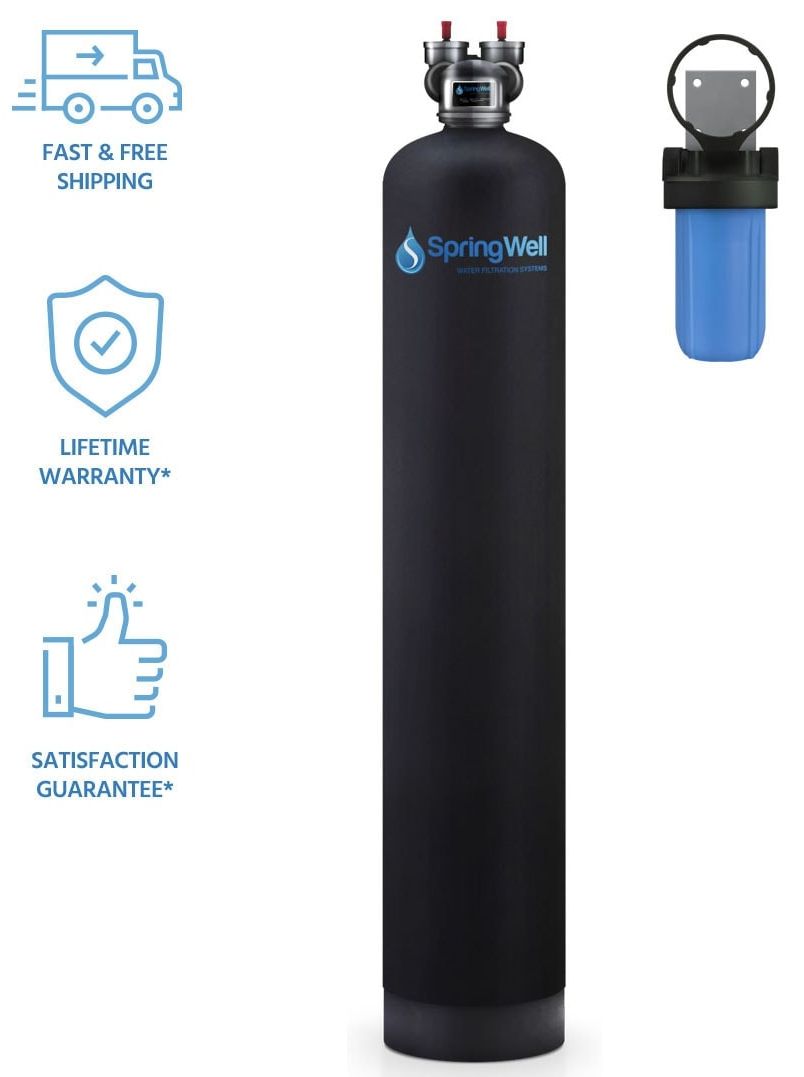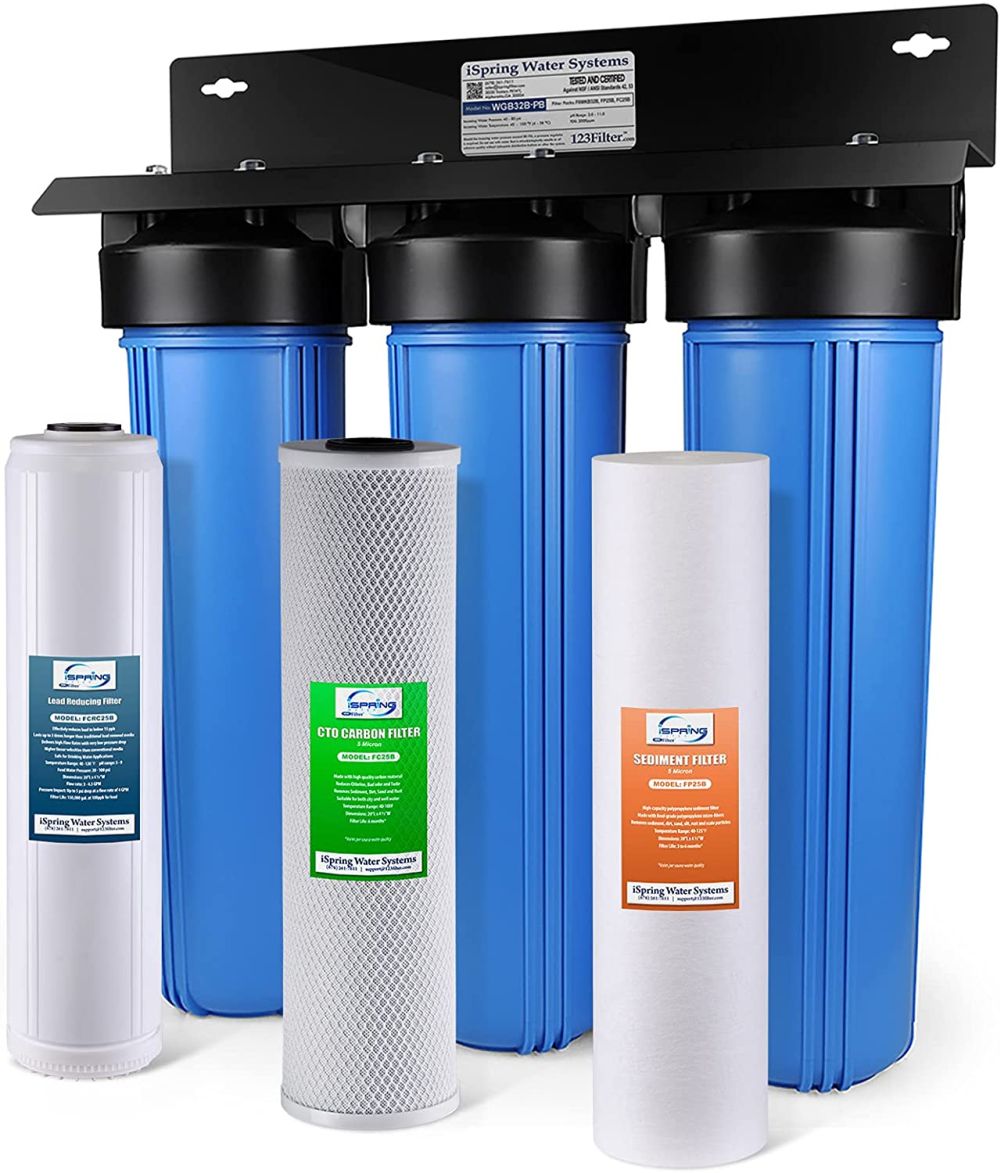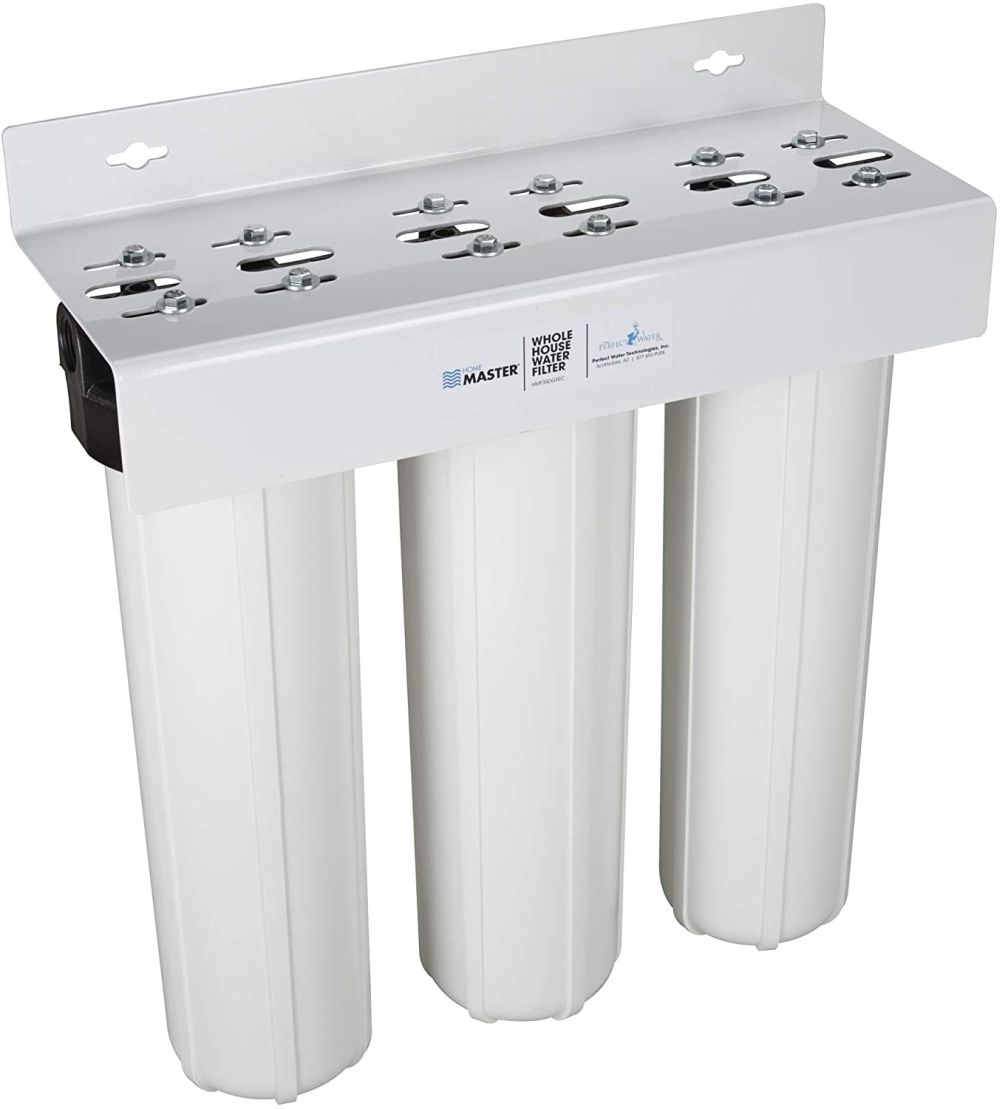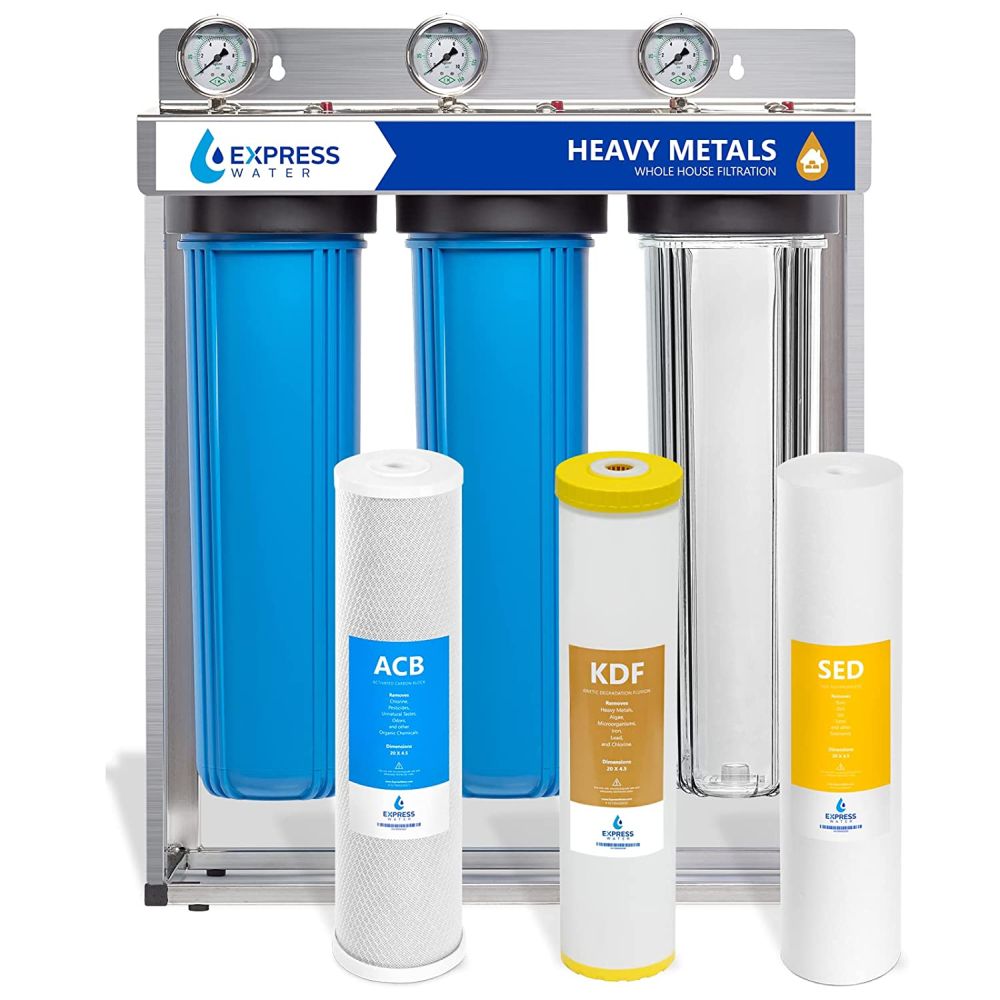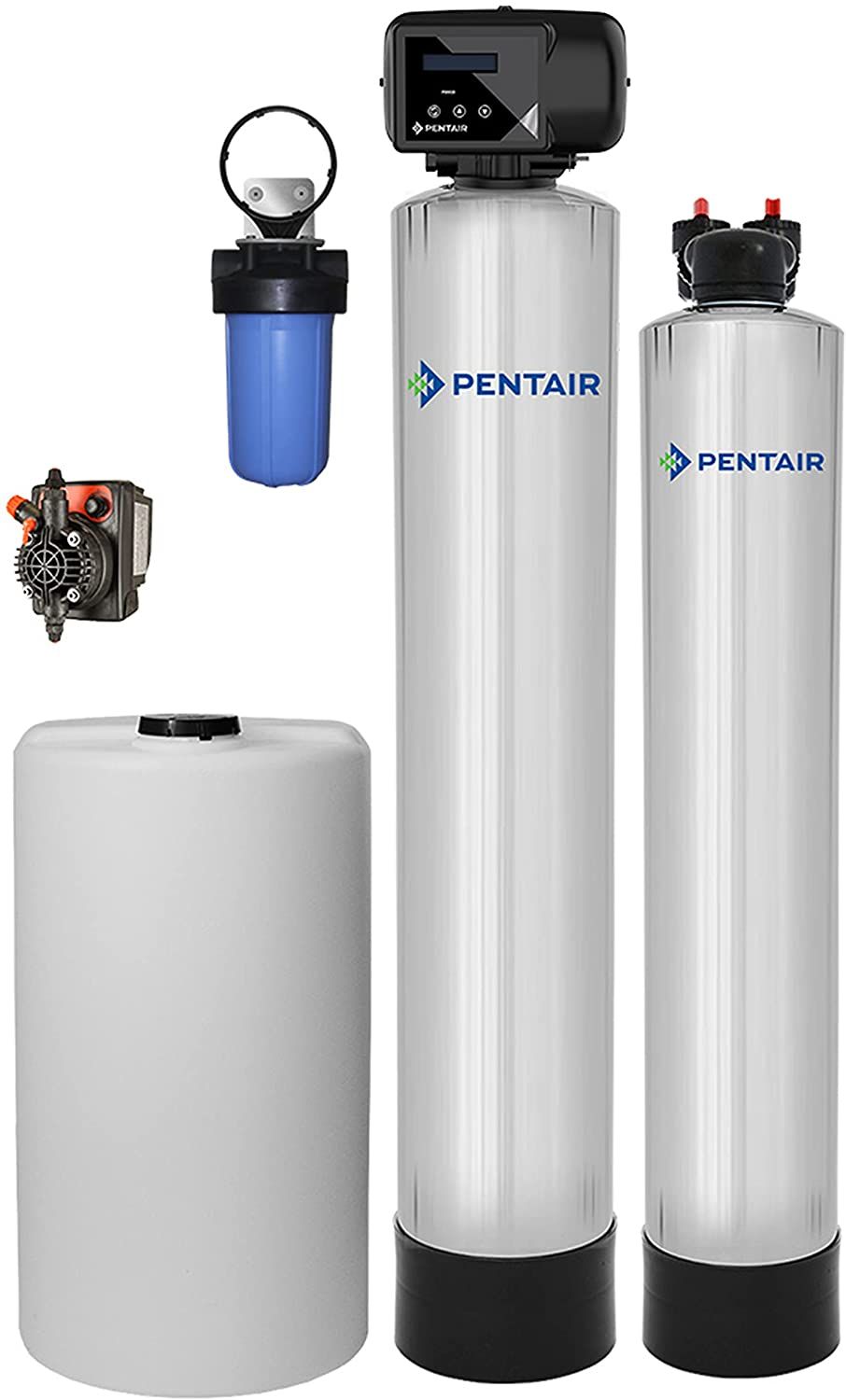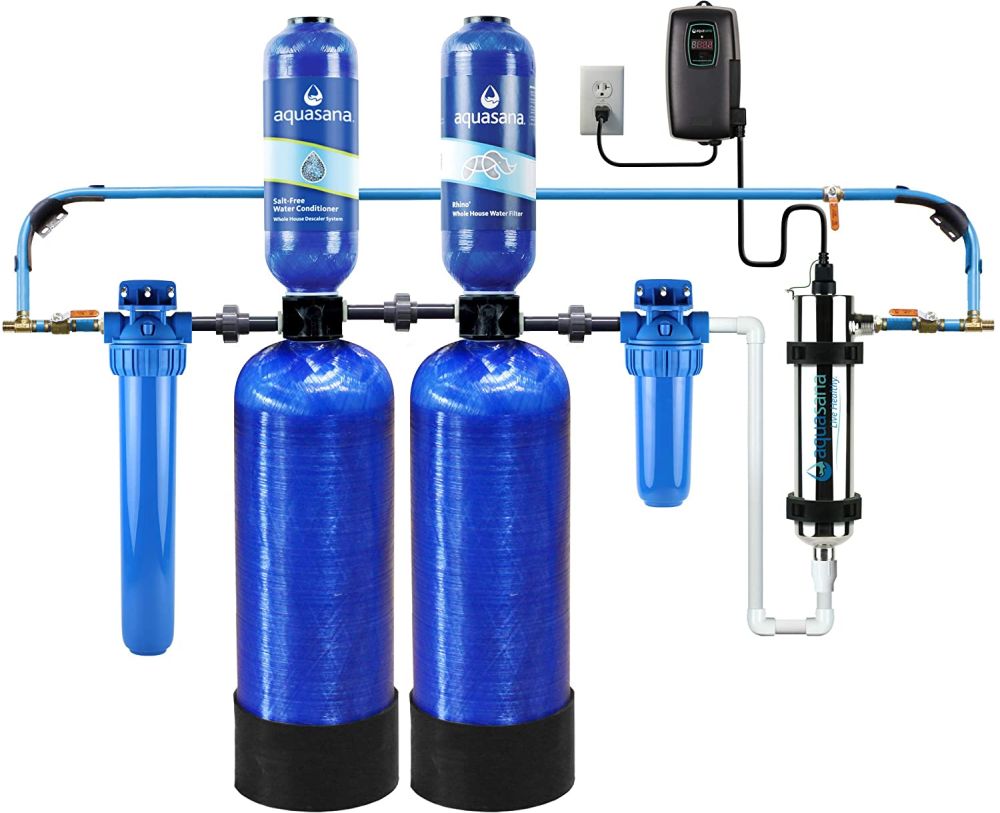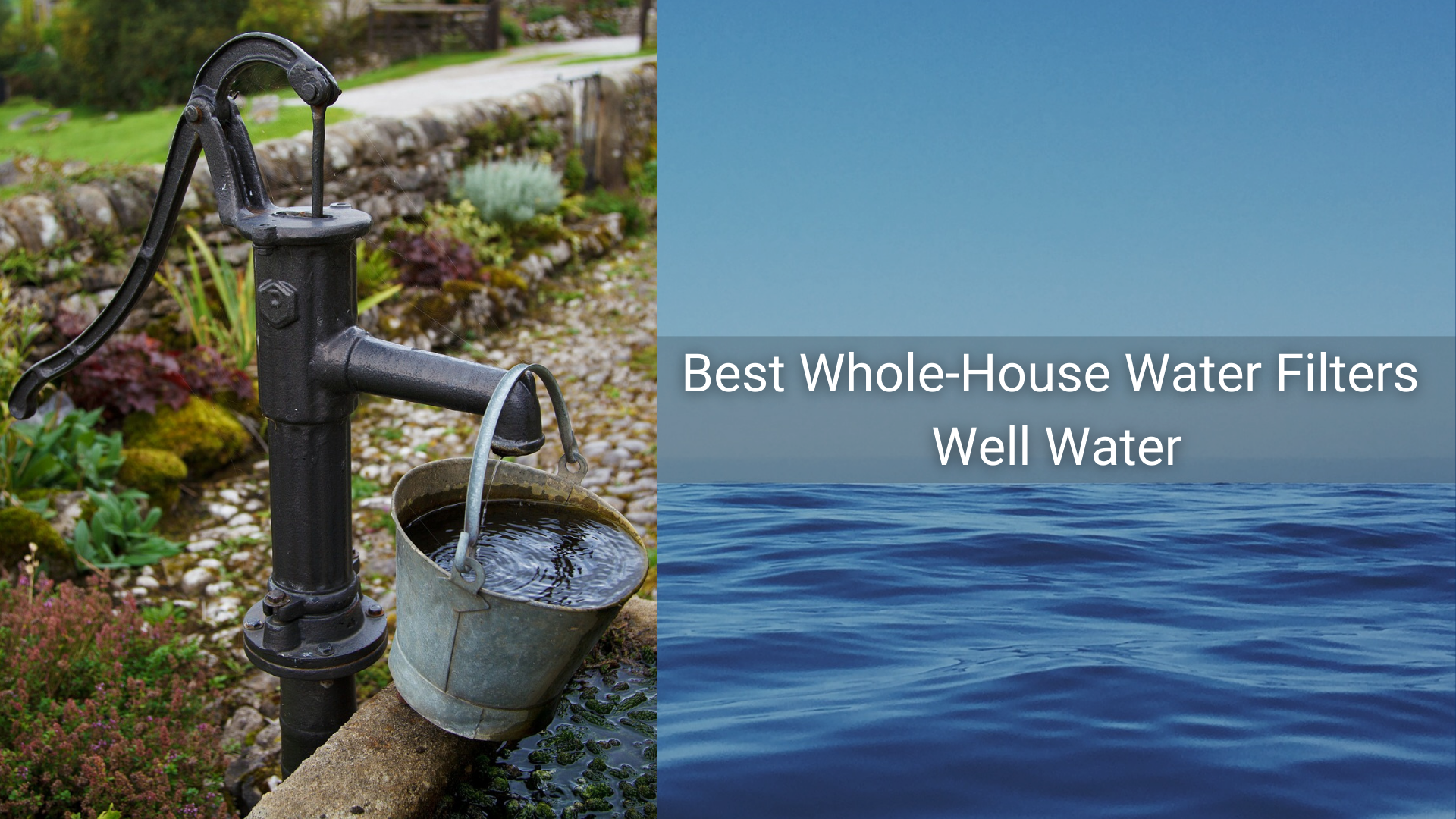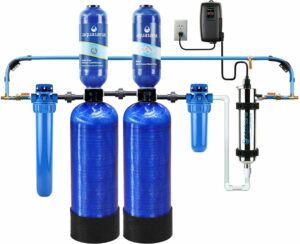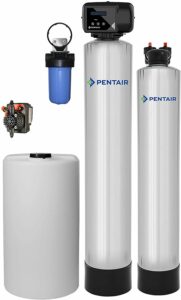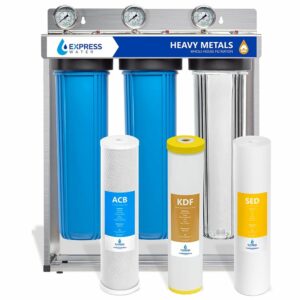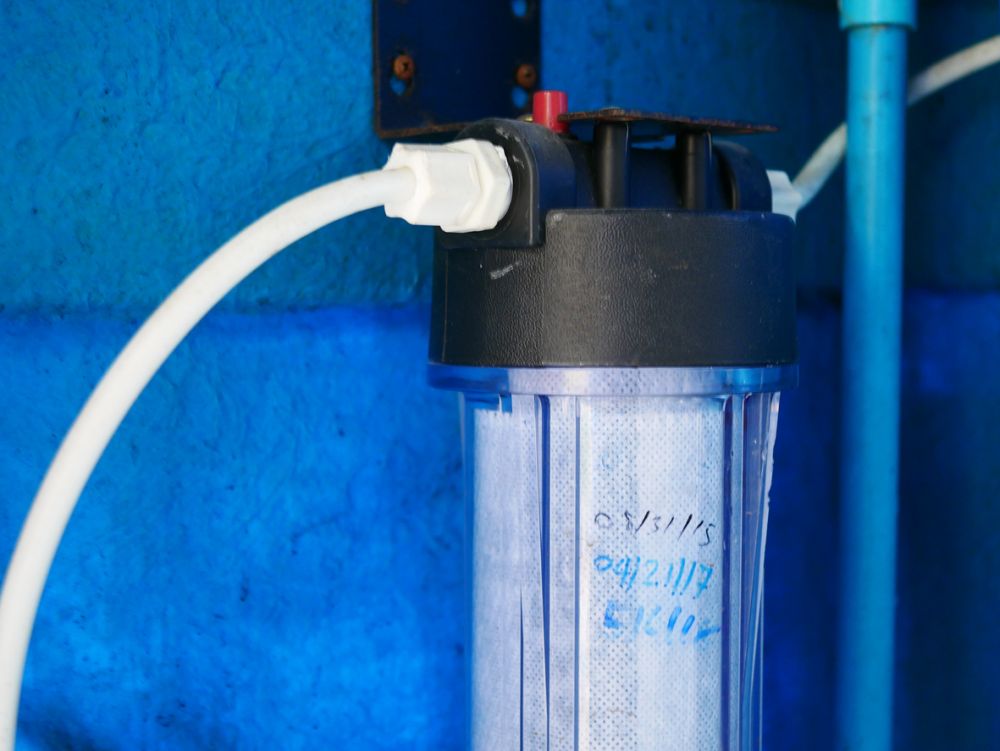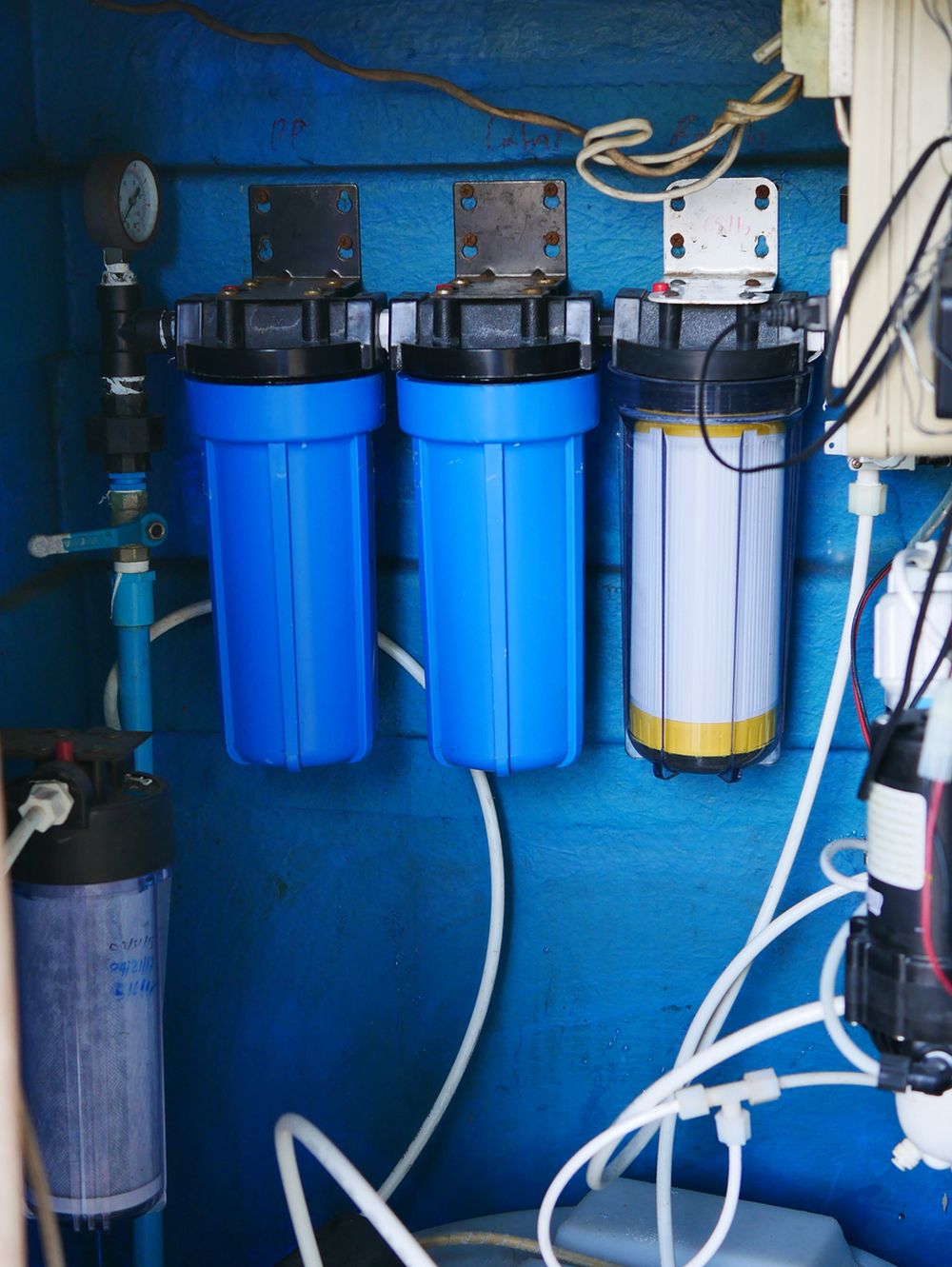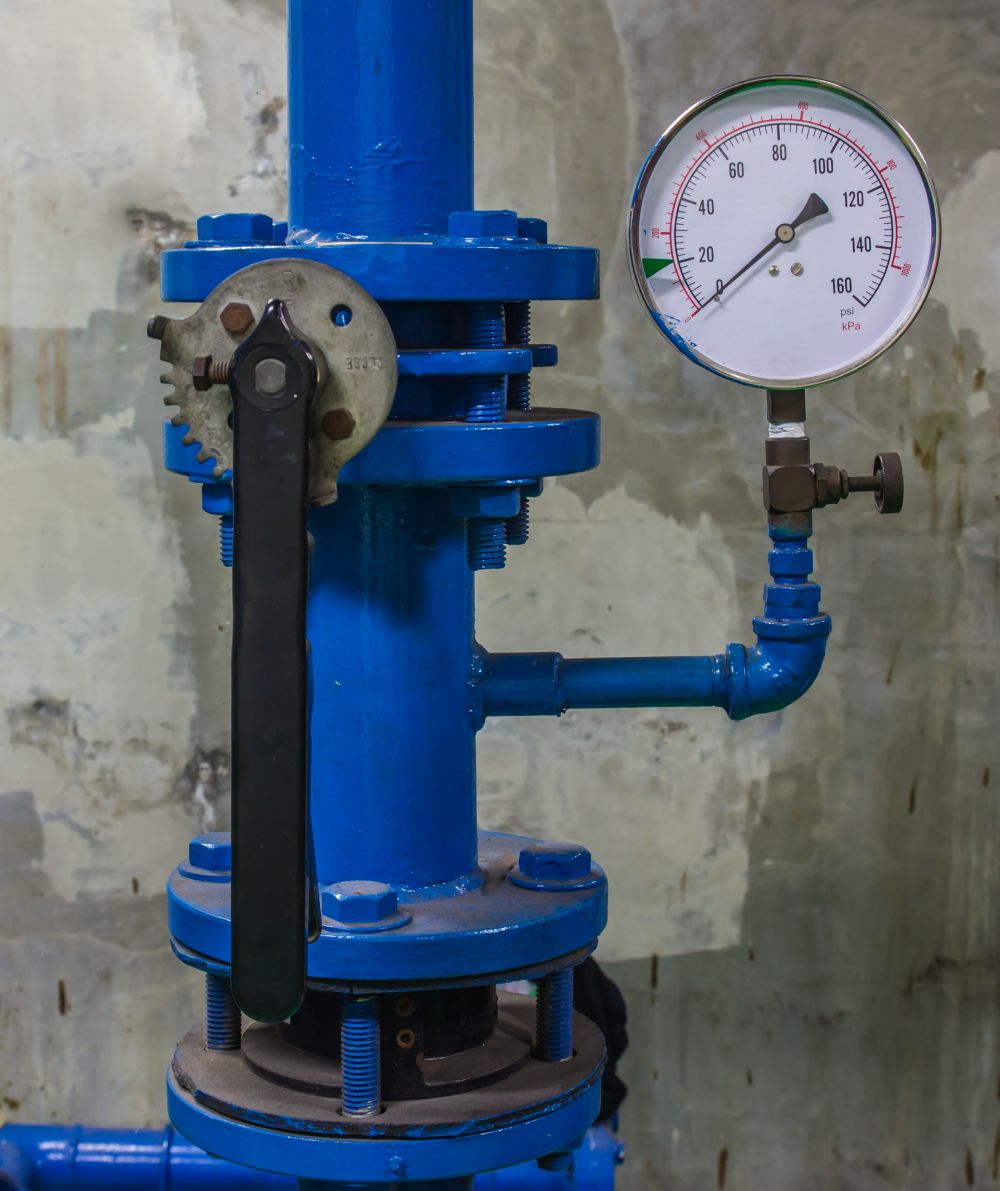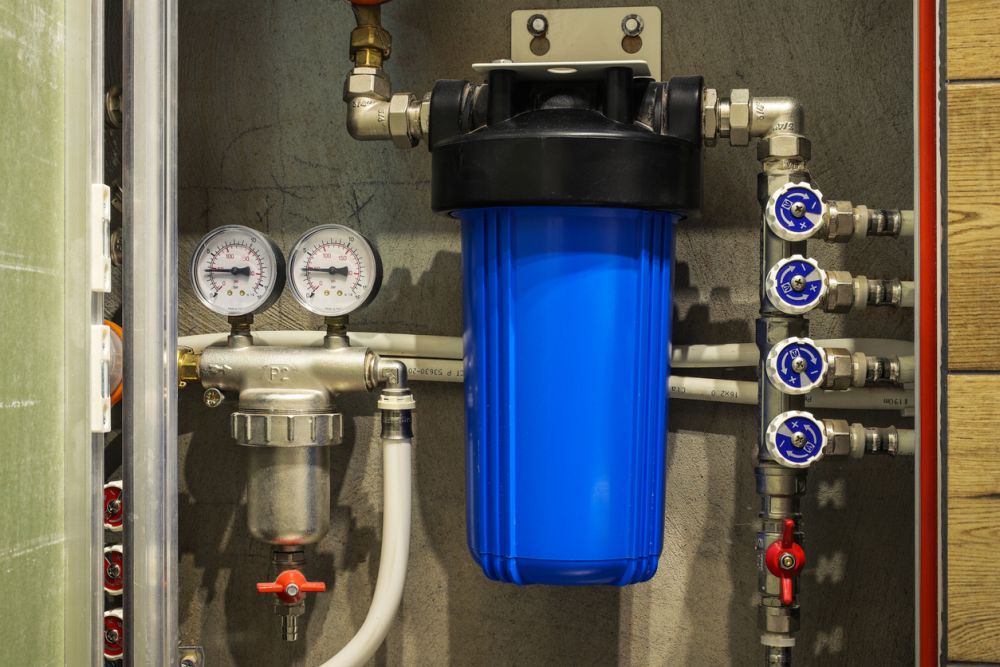7 Best Whole House Water Filters for Well Water (REVIEWS & BUYING GUIDE)
You’ll love the peace of mind that comes with knowing your family is drinking clean and fresh water. Find out the best whole house water filter for well water since we’re counting down our top picks.
Many homeowners get their water supply from private wells, especially those living in the country and rural homes. It’s an awesome alternative to staying connected to a large water utility system since you don’t have to worry about the water bill or service interruptions.
However, having a private well means dealing with its disadvantages, too. Besides running out of water when the power goes out, it’s essential to decontaminate it since it has a high mineral content, particularly iron. It also has a sulfurous taste and may leave stains in your bathroom and kitchen.
To get rid of the stains and prolong the life of your home appliances, you can get equipped with a water softener. However, a top whole-house water filter for well water is better since it makes the water drinkable and enhances its taste.
Table of Contents
The Best Whole House Water Filter for Well Water Reviewed
Now, let’s take a closer look and discover the advantages and disadvantages of the best whole house water filters for well water:
1. Aquasana Rhino Well Water with UV
Aquasana Rhino Well Water with UV is a superb whole house water filter for well water that lasts 5 years or 500,000 gallons.
With a size of 57 x 10.5 x 15 in (144 x 27 x 38 cm), it uses two tanks and a catalytic carbon media to treat contaminated well water and reduce hydrogen sulfide gases (rotten egg smell).
It also eliminates heavy metals since it works with a KDF-85 media. What’s more, the home water system has a 20-inch (51-cm) pre-filter and 0.35-micron post-filter, making it highly efficient at destroying leftover sediments and organic particles.
Aquasana Rhino Well Water with UV has a UV lamp that eliminates up to 99.99% of viruses, bacteria, and chlorine-resistant cysts. It delivers a 7-GPM flow rate, which is more than enough to satisfy the water requirements of a single-family home.
Pros
- Capacity of 5 years or 500,000 gallons
- Good water recovery rate of 7 GPM
- Easy to install
- Certified by the NSF
- Optional salt-free softener
- 90-day money-back guarantee
- 5-year limited warranty
Cons
- Removes tiny amounts of iron
- You might have to buy extra fittings for the setup
2. Pentair Pelican WF4-P Iron & Manganese Filter System Combo
Pentair Pelican WF4-P Iron & Manganese Filter System Combo is an advanced whole house water filter for well water that runs in four critical steps.
It uses a 5-micron pre-filter system to prevent sediment build-up and a chlorination injector to sanitize water with water pressure instead of electricity.
Next, it isolates iron using a filter media before removing it through the backwash system. Finally, it takes advantage of carbon filtration to produce fresh, drinkable water by eliminating chlorine, chloramine, and any remaining sediments.
With a capacity of 600,000 gallons, Pentair Pelican WF4-P Iron & Manganese Filter System Combo lasts between 10 and 15 years. It eliminates up to 10-PPM of iron from contaminated well water.
And it has a 10-to-15-GPM maximum flow rate, depending on the model. The unit measures 62 x 37 x 23.5 in (158 x 94 x 60 cm).
Pros
- Reduce iron up to 10 PPM
- Two versions available
- Excellent water recovery rate (10 GPM or 15 GPM)
- Includes a chlorination filter
- Certified by the NSF and WQA
- Easy to install
- 5-year warranty
- 60-day money-back guarantee
Cons
- Most expensive on this list
- Largest water filtering system on this list
3. Express Water Heavy Metal Whole House Water Filter
Express Water Heavy Metal Whole House Water Filter for well water follows a 3-stage program to remove iron, lead, and other heavy metals.
Firstly, it uses a sediment filtration system (SED) to contain sediments as small as 5 microns, such as sand, rust, and dirt.
Secondly, it uses a kinetic degradation fluxion (KDF) media to filter iron, lead, sulfur, algae, arsenic, chlorine, fungi, and mercury.
Thirdly, it utilizes a carbon block (ACB) filter to isolate and eliminate remaining chemicals, like chlorine, pesticides, and herbicides, to create clean and potable water.
Express Water Heavy Metal Whole House Water Filter measures 23.5 x 8.5 x 29.25 in (60 x 22 x 74 cm) and has a capacity of 1 year or 100,000 gallons. It delivers a 15-GPM flow rate.
Pros
- Excellent water recovery rate of 15 GPM
- Easy to install (intuitive installation manual)
- Incredibly affordable
Cons
- Low water capacity (100,000 gallons)
- Only 1-year limited warranty
- Filters must be changed often (between 6 months and 1 year)
- You might have to buy extra fittings for the setup
4. Home Master 3 Stage Filtration System
Home Master 3 Stage Filtration System is a whole house water filter for well water that runs in 3 stages to treat and purify water coming from contaminated private wells.
Firstly, it uses a sediment pre-filter to capture large or small sediment particles with a size of 25, 10, or 5 microns and isolate them in the filter media. Secondly, it uses a radial flow filter to eliminate up to 3 PPM of iron.
Thirdly, it uses an activated carbon filter to make the water safe for drinking by getting rid of pesticides, herbicides, and other dangerous chemicals. According to the manufacturer, it eliminates up to 95% of harmful agents.
Since it has a capacity of 100,000 gallons, the Home Master 3 Stage Filtration System lasts 6 months or 1 year before you must replace the filters, depending on the water usage and hardness. It measures 25 x 24 x 9 in (64 x 61 x 23 cm).
Pros
- Excellent water recovery rate of 15 GPM
- Remove up to 3 PPM of iron
- 2-year warranty
- Easy to install without professional assistance
- Super affordable
Cons
- Not suitable for well water with a high iron concentration
- Low water capacity (100,000 gallons)
- Filters must be changed every 6 months or 1 year
5. iSpring Whole House Water Filter System
iSpring Whole House Water Filter System is specifically built to lower the lead from contaminated well water in three steps.
Firstly, the whole house water filter for well water uses a 20-in (51-cm) sediment pre-filter made from polypropylene to capture harmful particles with a size as small as 5 microns.
In the second and third stages, it uses two filters to block and remove leftover chemicals using a coconut shell carbon mediaso that you can drink clean water from your faucet.
The entire system measures 21 x 8 x 28 in (53 x 20 x 71 cm) and has a 100,000-gallon water capacity. So it should last between 6 months and 1 year, depending on the water quantity and quality.
iSpring 3-Stage Whole House Water Filtration System removes up to 99% well contaminants to produce fresh water for your family. It has a 15-GPM peak flow rate and removes 150,000 gallons of lead to below 100 PPB. However, it can’t reduce iron and manganese.
Pros
- Excellent water recovery rate of 15 GPM
- Easy to install and maintain
- Certified by the NSF
- 1-year warranty
- Lifetime free tech support
- Cheapest water filtering system on this list
- Smallest on this list
Cons
- Can’t reduce iron and manganese
- Low water capacity (100,000 gallons)
6. SpringWell Whole House Well Water Filter System
With more than 20 years of experience in water quality, SpringWell Whole House Well Water Filter System sanitizes the entire well water by removing all contaminants, including iron, manganese, and sulfur.
This whole house water filter for well water eliminates up to 8 PPM of hydrogen sulfide, up to 7 PPM of iron, and 1 PPM of manganese. Plus, it doesn’t need any maintenance and can be programmed to run daily backwashes.
SpringWell Whole House Well Water Filter System lasts 10 years or 1,000,000 gallons. It has a 9-GPM flow rate, which is excellent for private wells and residential usage. The size is 13 x 54 in (33 x 147 cm).
And you can conveniently adjust settings from inside the house by turning to an intuitive mobile app connected through Bluetooth. For example, you can initiate backwash cycles, tweak the valve settings, or view the current water consumption.
Pros
- Capacity of 10 years or 1,000,000 gallons
- Remove up to 8 PPM of hydrogen sulfide, up to 7 PPM of iron, and 1 PPM of manganese
- Great water recovery rate of 9 GPM
- No maintenance
- Control settings using a mobile app
- Two models available
- 6-month money-back guarantee and lifetime warranty
- Optional UV water purification system
Cons
- Expensive
- Complicated to install (you need to hire a plumber)
7. SoftPro Iron Master AIO Water Filtration System
SoftPro Iron Master AIO Water Filtration System is the best possible choice for people who have a private well with high amounts of iron since it removes up to 30 PPM of iron.
It also eliminates 7 PPM of manganese and 5 PPM of hydrogen sulfide using an air injection oxidation system instead of filters, meaning zero maintenance.
The system measures 10 x 54 in (25 x 147 cm) and lasts up to 5 years or 500,000 gallons. Plus, ithas an electronic meter control valve that allows you to use as much water as necessary without any water pressure drops.
SoftPro Iron Master AIO Water Filtration System has vacation mode for auto-stopping water regeneration and refreshing to prevent bacteria growth when the filter hasn’t been used for more than 7 days.
Additionally, an internal battery remembers the date and time for 48 hours – extremely helpful for frequent power outages.
Pros
- Capacity of 5 years or 500,000 gallons
- Remove up to 30 PPM of iron, 7 PPM of manganese, and 5 PPM of hydrogen sulfide
- Uses air injection oxidation instead of water filters
- Doesn’t require any maintenance
- Three models available
- Water recovery rate of 5 GPM, 7 GPM, or 10 GPM (depending on model)
- Smart meter control valve
- Optional Viqua UV light for water disinfection
- Optional reverse osmosis system with advanced water alkalizer
- Lifetime warranty on tanks, limited lifetime warranty on valves, 7 years warranty on the circuit board
- 60-day money-back guarantee
Cons
- Tricky to install (you need to hire a plumber)
Why Use a Whole House Water Filter for Well Water
Purchasing a water filter system for the entire house to process well water is one of the smartest decisions you’ll ever make as a homeowner – give yourself a pat on the back when the deed is done!
Firstly, this system is a huge money-saver in the long run since you won’t have to buy bottled water. And you won’t have to make frequent trips to the store just to buy water, fill up the car, and carry it to your home.
In addition, many people prefer the taste of filtered well water to bottled water. And a whole-house system ensures filtered water for the entire home – drinking, cooking, cleaning, washing, and so on.
Granted, it’s more expensive than an under-sink water filter system but also more convenient.
How Does a Whole House Water Filter for Well Water Work?
A water filter connects to your well to treat all water. The treatment is eliminating the negative effects, including contaminants and impurities like sediments, silt, iron, magnesium, and calcium.
The way it works depends on the design. For instance, activated carbon is the most popular water filter media. It heats up coal, wood or coconut shells, or other carbon-heavy materials to produce char.
Next, the filter processes the char to generate a special material that absorbs water contaminants. If the water filter has a UV filter, it will remove any remaining bacteria and viruses to create fresh, clean water that your entire family can drink safely.
Another advantage of a whole house water filter for well water is that it’s customizable. You can get one that lasts 10 years, depending on how much you’re willing to invest.
The Pros and Cons of a Whole House Water Filter for Well Water
Buying a whole house water filter for well water is not cheap, so it’s important to compare the advantages and disadvantages to see if it’s worth the investment. Here’s what you need to know:
Pros
- Safely drink tasty water from your private well
- Improve your cooking and create delicious meals: boiled vegetables and meat, pasta, coffee, smoothies, and so on
- Decrease the risk of gastrointestinal diseases that could result from drinking unfiltered water with bacteria and viruses
- Eliminate dry skin resulting from hard water, refine your skincare routine, and have healthier hair
- Stay healthy by not inhaling contaminated vapors from showers or baths
- Save money and reduce trips to the store since you won’t have to buy bottled water anymore
Cons
- The water pressure could decrease throughout your entire home, including shower, bath, and sink
- It’s expensive. You are not only paying for the water filter unit, but also for installation and maintenance
- The filters must be regularly replaced, which can become a burden to some people
- Water filtering systems require electricity to work. So, if you live in an area that frequently experiences power outages, you will have to wait until the power is back up to use water (unless you have a power generator)
Whole House Water Filter for Well Water – Buying Guide
Here are critical aspects to take into account when purchasing a whole house water filter for well water:
Space availability
Water filtering systems come in various sizes. The general rule is: the more elaborate the system is, the more space it will occupy.
Check the product’s specifications on the official website and find out its exact dimensions. Then measure the available free space near your well or in your basement and compare the two values.
It’s essential to also take into account the size of any upgrades, such as a UV lamp or water softener. Even if you don’t want one or aren’t financially ready yet to buy those upgrades, prepare for the unforeseen future by checking the available room.
Some whole-house water filter systems can be installed inside the house. Others can be installed outdoor if they handle humidity, freezing, and overheating.
Maintenance requirements
A whole house water filter for well water typically uses activated charcoal to treat contaminations. So you must change the filters when they become dirty, or the system will send unfiltered water to your faucets.
How often you must replace the filters depends on the system’s capacity and well water quality, which you can discover by testing it. It also depends on how many people live in your home and total water consumption.
For example, a small water filtering system with a 100,000-gallon capacity lasts 6 months to 1 year. Meanwhile, a 1,000,000 gallon capacity lasts as long as 10 years. If you also install a UV lamp, you must replace it once a year.
On the other hand, a system that uses air injection oxidation instead of activated carbon doesn’t need maintenance, so you will save a lot of time and money in the long run. But the purchase and installation are expensive.
Water pressure
It’s essential to determine your home’s water pressure to see if a whole house water filter for well water can handle it.
If it’s too low, the system won’t be able to power multiple faucets or appliances simultaneously. So a family member would have to stop using the kitchen sink while you’re taking a shower, for example.
On the other hand, the filter will send water too fast if the pressure is too high, potentially damaging your appliances.
Most filters need 40 to 100 PSI, so you must get an adequate one for your plumbing system. Using a pressure gauge to measure your water pressure is the quickest way to find out.
Certifications
Water companies that have been in the market for a long time are well established and can afford to pay a third-party organization like the NSF to run independent tests.
So, if the manufacturer you’re interested in has been operating for a significant amount of years, its whole house water filter for well water should have already been certified by now. Otherwise, it could indicate that it doesn’t meet the health requirements.
Check for NSF/ANSI 61 (chlorine removal) and NSF/ANSI 42 (safe components) certifications.
Installation
It’s not easy to install a complex whole-house water filtering system. So you must hire a professional who can perform the setup correctly when adapting the machine to your home’s plumbing system.
It might also be necessary to purchase additional fittings for the installation, so you must take into account all costs involved.
On the other hand, some home water systems are easy enough to install without resorting to a specialist. If you want to save money this way, make sure to consult the official setup documentation released by the manufacturer.
Money-Back Guarantee and Warranty
Getting a money-back guarantee and warranty is a universal sign that you don’t have to worry about wasting your money on a product that might break down after a few uses. The manufacturer offers a lifetime warranty in the best scenario. But you can also find great deals with 5 or 10 years.
The money-back guarantee is different, though. You can safely test the system for 60 days, 90 days, or more (depending on the offer), then return the product and get back your money if you are unsatisfied with the results.
FAQ
Discover more helpful information about your next whole house water filter for well water.
What is the best filter system for well water?
We think that the best filter system for well water is Aquasana Rhino Well Water with UV. But it depends on your necessities.
How much does a well water filtration system cost?
It costs between $400 and $3000 without filter replacements, installation costs, and upgrades like a UV lamp or water softener.
Do I need a filter for well water?
Most people do. The surest way to tell is by testing your water for contaminants like iron, lead, mercury, volatile organic compounds (VOCs), chlorine, herbicides, and pesticides.
How often do you change your water filter for well water?
It depends on various aspects, like the quality of the unfiltered well water, the amount of water used in your household, the grain capacity of the water filtering system, and the media type. Generally, activated charcoal systems need a filter change every 6 months or 1 year.
Air injection oxidation systems have zero maintenance requirements but are more expensive. If you add a UV lamp, you have to replace it once a year.
Do you need reverse osmosis with well water?
A reverse osmosis system is highly effective at removing common well water contaminants. But it needs a separate storage tank and maybe even a booster pump.
Plus, reverse osmosis is not recommended for treating very hard water; the high amounts of calcium and magnesium will cause the reverse osmosis membrane to break down quickly.
Is a Whole House Water Filter for Well Water Worth It?
To put it bluntly, yes, a whole house water filter for well water is definitely worth the investment. It has tons of benefits and minor drawbacks, with the biggest one being price.
It can be challenging to make the right call, but it’s entirely up to you. If you want to go with our advice, we think Aquasana Rhino Well Water with UV hits all the right marks, although it’s certainly not the cheapest.
Whatever choice you make, be sure to return to this page and give us your feedback after testing your new whole house water filter for well water.
